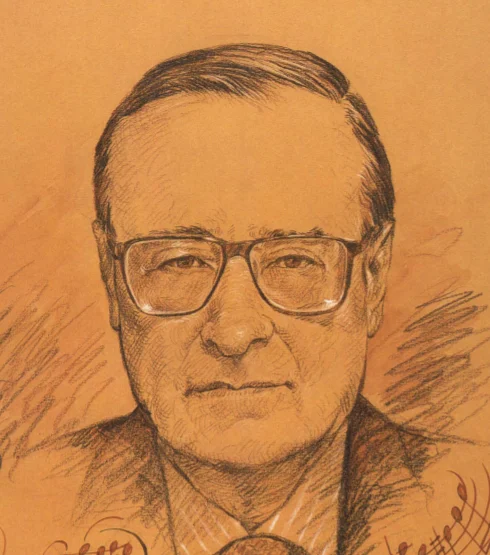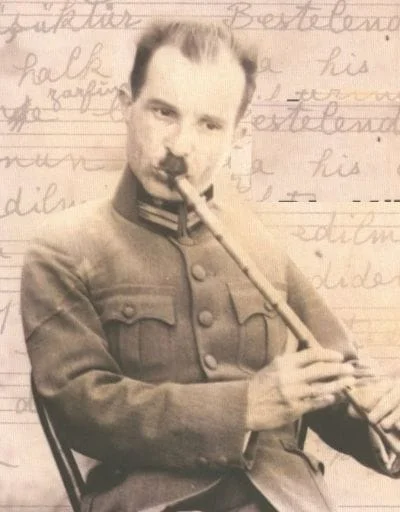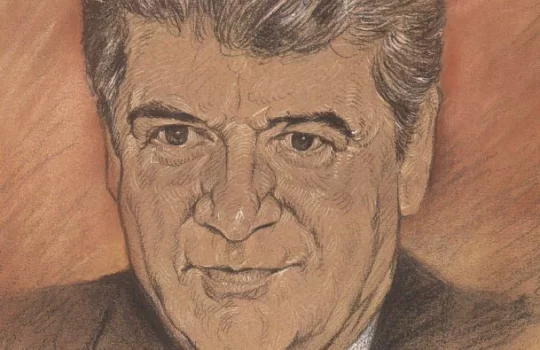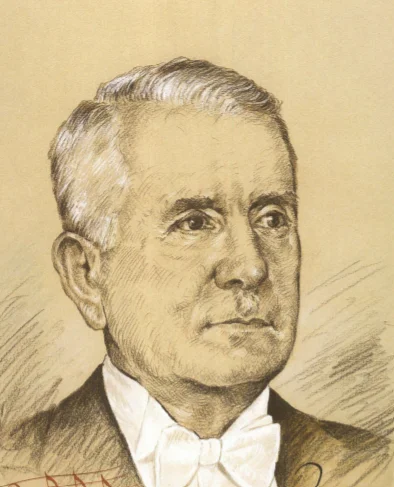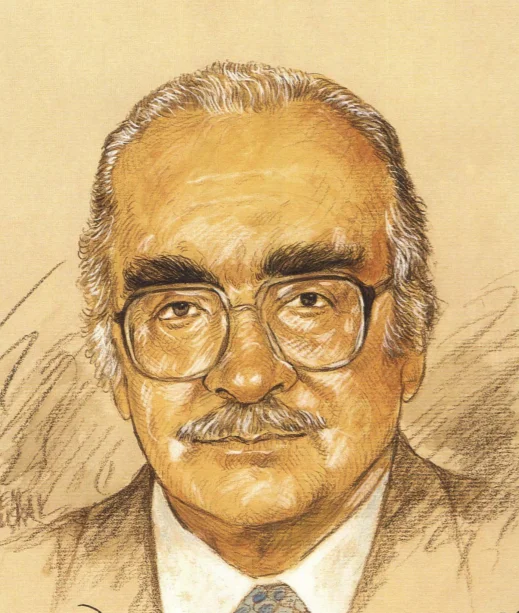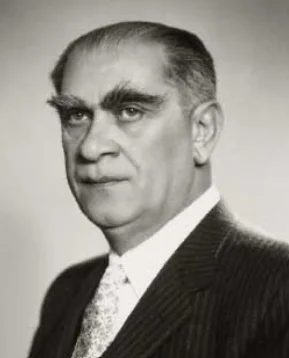Abdullah Tahsin Yılmaz Öztuna was born on September 20, 1930 in Vezneciler, Istanbul. His father is Mehmet Muhiddin Öztuna and his mother is Ayşe Süreyya.
Yılmaz Öztuna, who started primary school in 1936, completed his secondary education at New College. Öztuna, who went to France for his higher education, enrolled at the Institute of Political Science at Paris University.
He returned to Turkey to complete his military service in 1953-1954. After completing his basic education at the Supply School in Istanbul, he completed his military service in Erzurum, Sarıkamış and Selimiye.
In 1954 he continued in the Higher Division of Civilization Française and Alliance Française in Sorbonne. In 1957 he returned to Turkey after completing his higher education in France.
He accepted the duty of writer and scientific editor of Life Magazine. Thus, the period of professional writing has started.
He married Hatice Doğu on July 4, 1960. His daughter Hanzade was born in 1962, and his son Oğuzhan was born in 1964.
In 1965, he was appointed as the editor-in-chief of Life Magazine. He and Prof. Dr. Metin Tuncel published "Turkish Encyclopedia". He became a member of TRT Repertory Board in 1966. In 1967 he has completed his famous twelve-volume work "History of Turkey". He started to write political columns in World and Last News Newspapers.
The writing work of the Turkish Music Encyclopedia was offered to Yılmaz Öztuna by the Ministry of Education. The encyclopedia was completed and published by the Ministry of Education in 1969. Thus, he fulfilled the will of the deceased Hüseyin Sadettin Arel Hodja. This encyclopedia was later published by the Ministry of Culture for the second time in two volumes.
In 1969, he met Süleyman Demirel, the Chairman of the Justice Party, and entered active politics. The same year, he was elected as a Konya deputy from the Justice Party list.
In 1974, he became the Ministry of Culture Chief Advisor. During this period, he concentrated on his efforts to establish a Turkish music conservatory. He succeeded in his struggle and the conservatory was opened in Istanbul. He was a lecturer at the Conservatory. Later, he achieved to establish the State Turkish Music Choir, and he established the choir under the direction of Nevzad Atlığ.
He left his job in Life Magazine in 1975 due to the intensity of his work. In the same year, he taught Ottoman History and Civilization at the University of Higher Education. The notes for this lesson were later published as a book.
He was appointed to TRT Cultural Consultancy in 1979. He continued this duty until 1981. He was among the founders of the Nationalist Democracy Party in 1983. He worked as Faisal Finance Consultancy in 1985 and as a writer for Tercüman Newspaper in 1986.
Music studies go back sixty years. He continued his musical education, which started by listening to the old records in the house, continued by listening to fasil music in Belvü (Taksim Municipality and Tepebaşı Municipality Nightclubs) run by his father. Meanwhile, he met with the important musicians of the period. He started to learn notes on his own from the notes published by İskender Kutmani. He expanded his knowledge by watching the Narrative Turkish Music Program, which is being broadcast on the radio, directed by Ruşen Ferid Kam. He could read notes when he was in his last year of primary school.
When he was only twelve years old, he acquired Sadettin Nüzhet Ergun's "Anthology of Turkish Music" and took the first steps in his studies on music research. With Suphi Ezgi's work titled " Theoretical and Appllied Turkish Music", he became curious about the theoretical side of Turkish music.
In 1943, he successfully passed the entrance examination of the Istanbul Municipal Conservatory. He took solfege lessons from Kemal Gürses and theory lessons from Laika Karabey. In the sixth month of his enrollment in the conservatory, he continued the lessons of the great music master Hüseyin Sadettin Arel. Later, he became a student in Suphi Ezgi's private lessons and increased his knowledge and experiments on the aesthetics and mode of classical Turkish music.
During his years in Paris, he attended the Paris Conservatory as a listener and had the opportunity to get to know the famous virtuosos of western music.
Some of his works are:
- Ferahfeza Peşrev/Devr-i Revan/İstanbul, 1 Şubat 1950
- Ferahnüma Peşrev/Muhammes/İstanbul 7 Mart 1949 (Bu eser büyük müzikolog Hüseyin Sadettin AREL’e ithaf edilmiştir.)
- Hisarbuselik Saz semai/Hasret/Aksak Semai/Semai/Aksak/Yürük Semai/İstanbul 20 Mart 1949
- Keman için Şedaraban Peşrev /Bir Aşk Hatırası/Nim Sofyan/İstanbul 1 Temmuz 1949
- Uşşak Saz Semai/Bir Yaz Hatırası/ Aksak Semai/Devrihindi/İstanbul 5 Mart 1949
- Ferahnüma Saz Semai/ Kapris/Aksak Semai/Yürük Semai/İstanbul 24 Nisan 1949
Related Articles
Recently Added Articles...
Most Voted Product...
-
Sale Product on sale
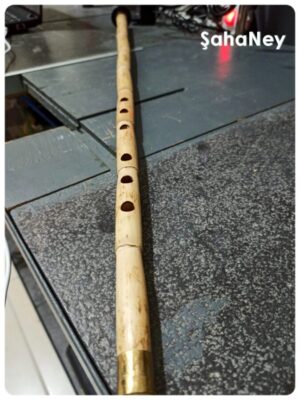 Kız Ney620,00 ₺ – 1.595,00 ₺
Kız Ney620,00 ₺ – 1.595,00 ₺

